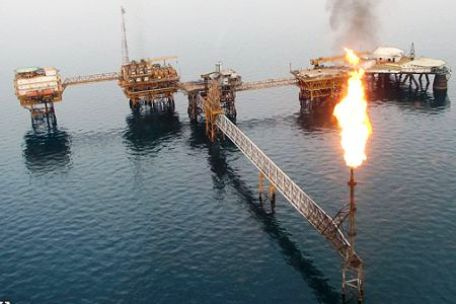Dumping to Defeat the Oil Sanctions

IRD: As Washington sustains a pertinacious campaign to increase pressure on Tehran so that it gives up its nuclear program, Saudi Arabia, the US’ close ally in the Middle East, is proudly violating OPEC regulations by touting its capability to replace Iran's oil export share of the global market. Iranian Diplomacy has interviewed Gholam-Reza Kiamehr, economic expert, on politics of oil export and Tehran-Riyadh struggle:
IRD: Saudi Arabia is not even trying to veil its will to replace Iran's oil export if the new EU and US sanctions against Iran become effective. Isn’t that against the OPEC protocols?
GRK: In OPEC, consensus has always been the norm. So far, even if any member has tried to take advantage of a situation against another’s benefits, it has been covertly. Public announcement of plans to replace the oil products of another country disembowels the initial cause of OPEC’s formation.
Riyadh’s decision will serve as a disruptive precedent which can be followed by any other OPEC member, any time. OPEC’s power lies in its united presence in the oil market.
IRD: Is it actually possible to replace Iran's oil in the energy market?
GRK: If multinational companies and the European and American oil giants cooperate with some of the Arab countries, that could happen for short-term. But that would kill the OPEC soul.
IRD: Considering Iran’s heavy reliance on oil revenue, how do you predict the short- and long-term impact of energy sanctions on the Iranian economy?
GRK: I think we will see the impact for short-term, but not for long-term. No oil sanction against Iran has been effective except the one enforced in 1951 against Iran that had nationalized the oil industry under Dr. Mosaddeq’s premiership. Iran's oil industry is not underdeveloped as it was in those days. We had no petrochemical production or the downstream oil industry. The situation has changed today. Our main problem will be in the area of crude oil export. If you look at it in a positive way, in the long-run, Iran can use this as an opportunity to upgrade its downstream industries. But apart from all these speculation on the impacts, I don’t think the oil sanctions against Iran could be actually materialized. Oil is not a commodity like an automobile which would bear Made in Iran label. It can be transferred from one oil tanker to another, and then sold in the market.
Plus, Iran is not a country like Iraq who only has Basra as its passage to free waters, which could be easily blocked. Iran borders on the Sea of Oman, and in the meantime, it does not export its oil cargo exclusively via the Persian Gulf. There could be problems if we were a landlocked country like Afghanistan.
IRD: Are there any other solutions to alleviate the negative effects of the sanctions?

